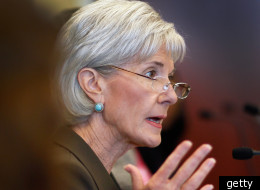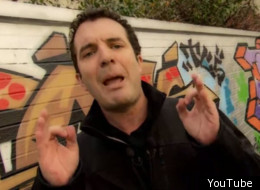Stephen Harper flies to Seoul next week for a nuclear security summit where not everyone will see his country as a model player: A Canadian company is accused of frustrating efforts to wean the world off bomb-grade uranium.
Ottawa-based Nordion Inc. is the world’s biggest producer of medical isotopes, the life-saving radioactive tools used to diagnose and treat cancer and other diseases. But it relies on materials drawn from highly enriched uranium – and has cut a 10-year deal to get supplies from Russia.
That has a coalition of American arms-control advocates and non-proliferation experts, and some members of the U.S. Congress, complaining that Canada is slowing efforts to ensure bomb-grade uranium does not fall into terrorists’ hands.
Mr. Harper signed on to efforts to reduce the civilian use of highly enriched uranium (HEU), as a key part of the first nuclear security summit U.S. President Barack Obama convened in 2010. But Canada’s willingness to move quickly is being questioned.
Like all nations that produce medical isotopes, Canada has pledged to phase out the production of HEU-based isotopes for the more expensive low-enriched uranium (LEU) version. Nordion, the biggest player in the global isotope market, supplying half of U.S. needs, is considered central to these efforts.
But in the fall of 2010, Nordion entered into a 10-year deal with a Russian company to ensure a steady source in the years ahead. While the deal includes a commitment to work on converting to LEU, the timeline has not been set. And it means Nordion could use Russian supplies to get around the provisions of a bill before the U.S. Congress to tighten controls on American HEU.
As a result, critics say, Russia now has less incentive to get rid of its HEU – despite the fact that both Canada and the U.S. have spent hundreds of millions of dollars to secure Russian nuclear materials – and Nordion has less incentive to convert to LEU more quickly.
In addition, they say, because Nordion’s HEU-based isotopes are cheaper to produce, others converting to LEU can’t compete, and that’s unlikely to change now that Nordion has a long-term supplier in Russia.
“This deal basically makes it impossible for people using the safer material to compete,” said Miles Pomper, a Washington-based senior research associate at the James Martin Center for Nonproliferation Studies. “It discourages other countries from converting, which means there’s more HEU in other places, too.”
Even some arms-control advocates acknowledge that, from a business point of view, Nordion had little choice.
Because Canada is not a nuclear-weapons state, it does not enrich uranium, so Nordion usually imports material extracted from U.S. HEU stockpiles. It uses the federally owned research reactor in Chalk River, Ont., to process it for medical use.
But that reactor, beset by leaks and problems from 2007 to 2009 that triggered global shortages of medical isotopes, is set to close in 2016. The government mothballed two new MAPLE reactors that were slated to take over, sparking Nordion to launch a $1.6-billion lawsuit against Atomic Energy of Canada Ltd., a Crown corporation.
Nordion says it is collaborating on projects to develop new ways to produce isotopes without HEU, but vice-president Tamra Benjamin said by email that “the large-scale commercially viable application of these new technologies is still several years away.” Eliminating access to HEU-based materials would “have a detrimental effect on tens of thousands of patients around the world,” she said.
Canadian federal agencies are financing research into non-HEU isotope production. And with the U.S. medical market so dependent on Nordion’s products, it’s questionable how far the U.S. can go in pressuring Canada to move more quickly. But Mr. Harper can expect pressure in the hallways in Seoul.
Chad Westmacott, an analyst at the OECD’s Nuclear Energy Agency, said it’s not the countries’ intent that’s questioned, “but actual timelines.”
“There’s probably going to be a lot of talk about this on the side,” he said.
Original Article
Source: Globe
Author: jeremy torobin






































